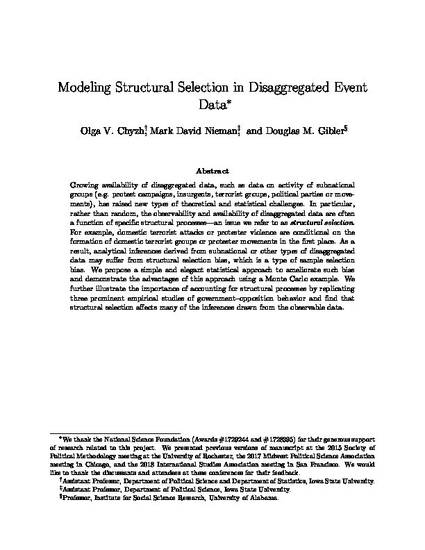
Growing availability of disaggregated data, such as data on activity of subnational groups (e.g. protest campaigns, insurgents, terrorist groups, political parties or movements), has raised new types of theoretical and statistical challenges. In particular, rather than random, the observability and availability of disaggregated data are often a function of specific structural processes—an issue we refer to as structural selection. For example, domestic terrorist attacks or protester violence are conditional on the formation of domestic terrorist groups or protester movements in the first place. As a result, analytical inferences derived from subnational or other types of disaggregated data may suffer from structural selection bias, which is a type of sample selection bias. We propose a simple and elegant statistical approach to ameliorate such bias and demonstrate the advantages of this approach using a Monte Carlo example. We further illustrate the importance of accounting for structural processes by replicating three prominent empirical studies of government–opposition behavior and find that structural selection affects many of the inferences drawn from the observable data.
Available at: http://works.bepress.com/mark-nieman/5/

This is a pre-print is from Chyzh, O.V., Nieman, M.D., Gibler, D.M. Modeling Structural Selection in Disaggregated Event Data.